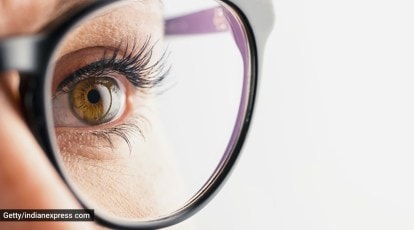Is Refractive Surgical Treatment Right for You? Variables to Consider for Better Eyecare
In the world of eye treatment, the decision to undergo refractive surgical treatment is a weighty one that demands thoughtful consideration. As people seek quality and liberty from the constraints of restorative lenses, many variables enter play when identifying the viability of such a procedure. From the complexities of one's ocular health and wellness to the ins and outs of day-to-day habits and individual expectations, each element holds value in the broader landscape of refractive surgery candidacy. By examining these crucial elements with treatment and accuracy, a more clear course in the direction of informed decision-making emerges.
Eye Health And Wellness Examination
When thinking about refractive surgical treatment, a detailed eye health analysis is critical to examine the suitability of the treatment for each and every person. andalusia pediatrics. This assessment involves a collection of assessments and tests performed by an eye treatment professional to establish the total health of the eyes, the existence of any hidden conditions, and the stability of the refractive mistake
Throughout the analysis, various elements are taken into consideration, such as the person's case history, present eye prescription, corneal thickness, student size, and tear movie quality. These analyses help to recognize any kind of contraindications to refractive surgical procedure, such as corneal irregularities, cataracts, or neglected eye infections. In addition, the assessment aids to manage client expectations regarding the prospective end results of the surgical treatment based upon their distinct eye characteristics.
Ultimately, the eye health assessment is necessary in ensuring the safety and effectiveness of refractive surgery, as it provides beneficial insights into the individual's eye health status and assists figure out one of the most ideal therapy alternatives for attaining optimum aesthetic outcomes. (neurologist andalusia)
Lifestyle Evaluation
A complete way of living evaluation is important in determining the suitability of refractive surgical procedure for a person's aesthetic modification requirements. Lifestyle variables such as line of work, leisure activities, and day-to-day activities play a vital function in the decision-making process concerning refractive surgical treatment. People with professions that involve a high degree of physical task or direct exposure to environmental aspects may have various visual requirements compared to those with sedentary workdesk jobs. Understanding just how an individual's way of living might impact their vision post-surgery is necessary for handling expectations and making certain optimum outcomes.
Moreover, lifestyle routines such as sports engagement, exterior activities, or even skincare routines can affect the healing process and total success of refractive surgery. By carrying out a comprehensive way of living analysis, eye care professionals can customize their referrals and treatment plans to satisfy the special requirements of each client, inevitably leading to improved aesthetic results and contentment.
Expectation Placement

Patients need to comprehend that while numerous people attain 20/20 vision or far better adhering to refractive surgical treatment, some might still need glasses for specific activities like analysis or driving at night. Handling these assumptions aids avoid disappointment and frustration post-surgery, leading to an extra positive overall experience for the client.
Danger Analysis

Aspects that might enhance the risk of complications consist of age, particular clinical problems like autoimmune illness, unsteady vision prescription, slim corneas, and unrealistic individual assumptions. In addition, choosing a experienced and skilled doctor, complying with pre and post-operative treatment instructions carefully, and divulging any relevant case history can assist alleviate threats.
To reduce the possibility of complications, eye doctors carry out comprehensive pre-operative examinations to determine any contraindications to surgical treatment. They likewise review the possible threats and benefits with people during the examination process. By participating in open communication and shared decision-making, both the client and the ophthalmologist can collaborate to identify if refractive surgical procedure is the best choice based on individual risk accounts and wanted end results.
Appointment Relevance
Taking into consideration the essential duty of educated decision-making in analyzing threats and prospective problems in refractive surgery, the consultation process holds substantial value in leading people in the direction of ideal outcomes. Throughout the appointment, the eye doctor examines the person's eye health, refractive errors, and total viability for surgery. This first evaluation is important in determining one of the most appropriate procedure for each and every person, considering variables such as corneal thickness, pupil dimension, and existing eye conditions.
In addition, the assessment functions as an opportunity for clients to review their expectations, concerns, and any type of questions they might have concerning the surgical procedure. Clear communication in between the individual and the surgeon is crucial to guarantee reasonable assumptions and an extensive understanding of the potential dangers and advantages involved.
Furthermore, the appointment allows the doctor to describe the various surgical choices readily available, their respective results, and the post-operative treatment required. This extensive conversation encourages clients to make knowledgeable choices about their eye care, causing far better satisfaction and results post-surgery.
Final Thought
Finally, individuals considering refractive surgical treatment needs to undertake a comprehensive eye health and wellness examination, analyze their way of living routines, straighten their assumptions with potential outcomes, evaluate the connected risks, and focus on consultations with eye treatment professionals. These elements play a vital function in establishing the viability of refractive surgery for every individual, making sure optimal outcomes and satisfaction with the treatment.
Individuals thinking about refractive surgery commonly have high expectations concerning the outcomes, anticipating perfect vision without the requirement for glasses or get in touch with lenses. While refractive surgery can greatly improve vision and reduce dependence on visual help, it is critical for patients to understand that outcomes may differ based on private aspects such as the degree of refractive mistake, corneal thickness, and overall eye wellness.
By involving in open communication and shared decision-making, both the eye doctor and the client can work with each other to figure out if refractive surgical treatment is the right selection based on individual threat accounts and desired end results.
Thinking about the crucial duty of informed decision-making in evaluating risks and prospective problems in refractive surgical procedure, the examination process holds considerable importance in assisting patients in the direction of optimal results. Throughout the assessment, the eye doctor examines the patient's eye health and wellness, refractive mistakes, and overall viability for surgical procedure.